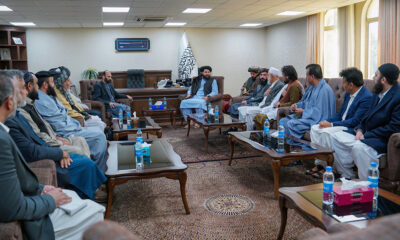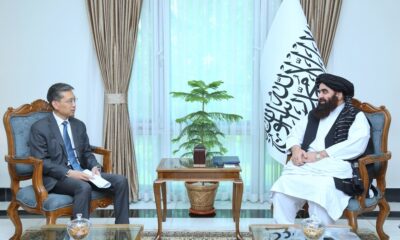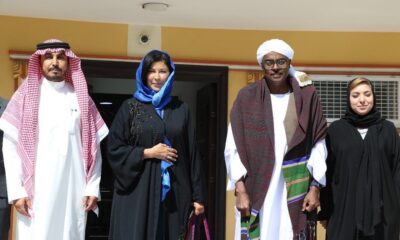Business
IMF, Afghanistan reach preliminary agreement over Extended Credit Facility
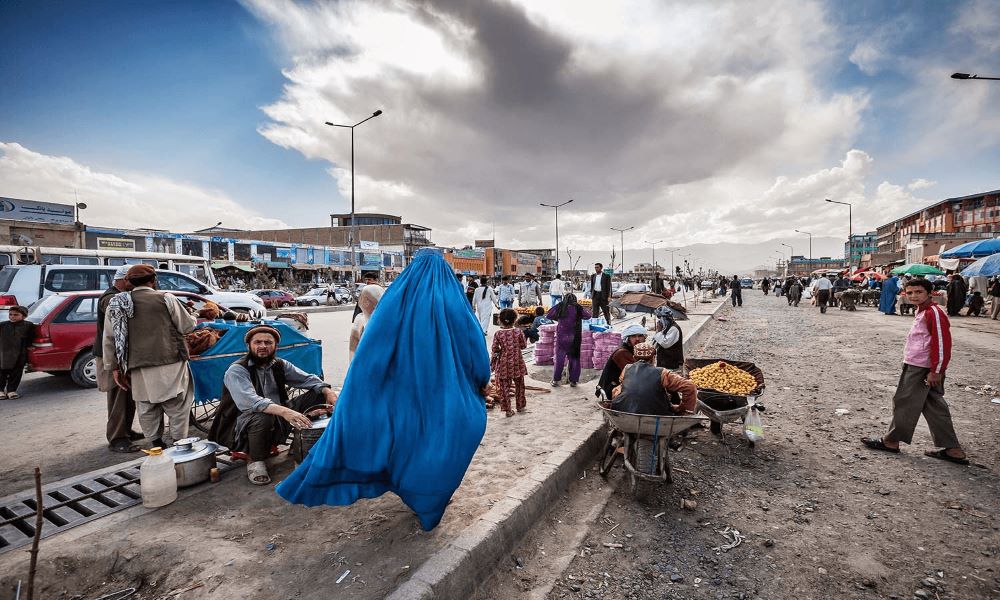
The International Monetary Fund (IMF) and the Afghanistan authorities have reached a preliminary agreement on an economic reform program to be supported by a new three-and-half year US$364 million Extended Credit Facility (ECF).
This announcement comes just three months before the United Nations’ donor pledging conference for Afghanistan gets underway.
In a statement issued by the IMF on Friday, the fund said the ECF will help mitigate the economic impact of the Covid-19 pandemic, maintain macroeconomic stability, and underpin reforms for economic resilience and good governance.
The fund also stated that continued financial assistance from international partners is critical to support objectives of Afghanistan’s National Peace and Development Framework for 2021-25, including inclusive growth, poverty reduction, and self-reliance.
Leading the IMF’s team was Azim Sadikov, and virtual discussions were held with Afghan officials through July and August on the country’s economic reform program.
Sadikov said however that the agreement is subject to the approval of the IMF’s Executive Board, which would possibly consider the agreement in October after preliminary conditions have been met by Afghan authorities, including the improvement of accountability and transparency in procurement processes.
“The new ECF arrangement will support authorities’ reform program to maintain macroeconomic stability and lay the ground for a sustained post-pandemic economic recovery while continuing to advance structural reforms,” Sadikov said.
He said the reform program aims to gradually reverse the fiscal decline due to the pandemic and instead create space for development sending while increasing self-reliance.
He stated improvements in customs collections and revenue administration need to be improved and the planned Value Added Tax (VAT) process needs to be implemented in 2022.
“Monetary policy will continue to focus on maintaining price stability and a flexible exchange rate regime, while fostering confidence in the Afghani,” Sadikov said.
He also said that reforms, in accordance with the new ECF arrangement, will focus on addressing issues that hamper economic growth and resilience.
“To that end, the program will aim to improve fiscal governance, strengthen the anti-corruption regime, and bolster the financial sector,” he said.
“Bolstering the financial sector, including by completing the reform of state-owned banks, will also be important to boost its capacity to contribute to growth.
“Coming before the November pledging conference, the ECF arrangement is expected to catalyze donor financing, which is critical to support Afghanistan’s reform and development objectives under the multi-year National Peace and Development Framework,” he said.
The pledging conference is organized every four years and was last held in 2016 in Brussels.
This year, Finland will host the conference, which will be organized by both the UN and Afghanistan.
Previous international financial commitments largely end by December of this year.
Business
Afghanistan starts exporting via railway to Turkey

The Ministry of Interior says that Afghanistan has started exporting goods to Turkey via the Herat-Khaf railway line.
In a post on X, the ministry said: “Afghanistan’s exports to Turkey started in a calm atmosphere through the Herat-Khaf railway line.”
The ministry added that one train will run daily for a month and then two trains will run daily.
According to the ministry, the security of Khaf-Herat railway line is provided by the guards of the National Public Protection Agency.
Khaf-Herat railway project not only connects Iran and Afghanistan by rail, but also completes a 2,000-kilometer route along the east-west rail corridor from China, through Uzbekistan, to Afghanistan, to Iran, and on to Turkey and Europe.
As a landlocked country, this railway network will provide a safe route to connect with Europe via Iran’s railway network and Iran’s southern ports.
This railway line is strategic for trade between Iran and Afghanistan and will allow six million tons of goods to be sent between the two countries.
Business
Afghanistan, Kazakhstan to hold joint expo in Kabul
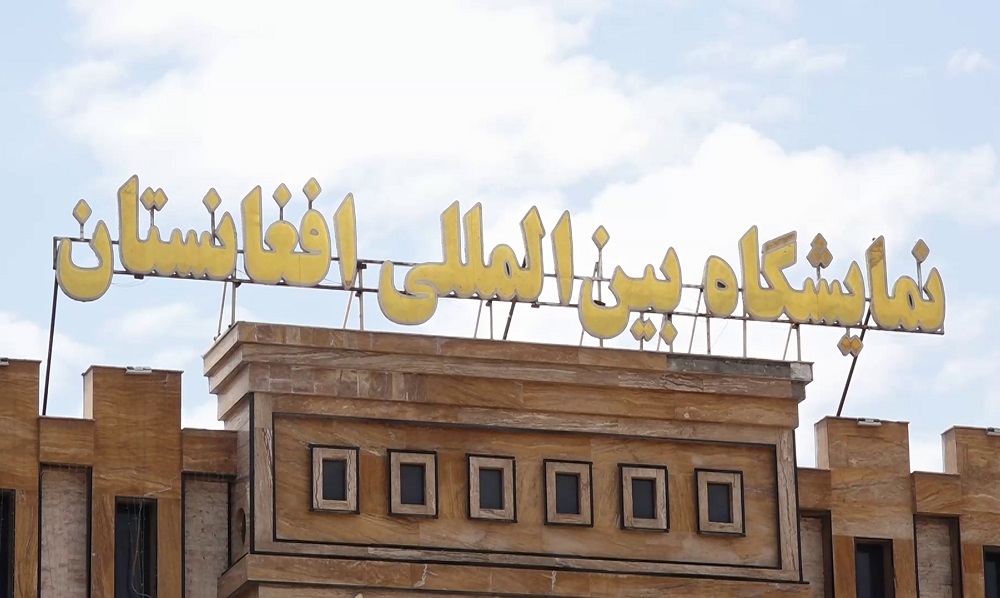
A joint expo between Afghanistan and Kazakhstan will be held in Kabul in the next four days, officials said on Sunday.
Officials of the Ministry of Industry and Commerce said that the two-day expo will be held for the purpose of expanding and strengthening trade relations between the two countries.
“This expo will be held as a follow-up of the Kazakh-Afghan international expo, which was held in the city of Astana, Kazakhstan, with the participation of a large delegation of the government and the private sector of the Islamic Emirate of Afghanistan,” Abdulsalam Javad Akhundzadeh, the spokesman of the Ministry of Industry and Commerce, said.
“At this expo, domestic products from different sectors of Afghanistan and the Republic of Kazakhstan will be put on display for two days.”
According to officials, 40 large Kazakh companies, and 40 large Afghan companies will exhibit their products.
Mohammad Saber Latifi, head of the Afghanistan International Expo Center, said that fruits, minerals and commercial services will be displayed at the expo.
During the expo, various memorandums of understanding for the trade of goods are also expected to be signed by companies.
Business
Afghanistan’s economic prospects are bleak: World Bank

The absence of GDP growth coupled with declining external financing avenues for off-budget expenditures paint a bleak picture of Afghanistan’s economic prospects, the World Bank said.
After a severe 20.7 percent GDP contraction in 2021, the Afghan economy contracted further by 6.2 percent in 2022, the bank said in a report.
“While Afghanistan’s agricultural and subsistence economy, including illicit opium production, provided some resilience in rural areas, higher prices, reduced demand, lower employment, and disruptions to services had severe impacts across the country,” it said.
The proportion of households that did not have enough income to meet basic food needs more than doubled from 16 percent to 36 percent in this period, according to the bank.
In the context of deep concerns about the policies of the Islamic Emirate of Afghanistan (IEA), including restrictions imposed on women and girls, the international community, including the World Bank, recalibrated its approach to supporting Afghanistan: first to providing humanitarian support and then to providing off-budget support for basic service delivery and livelihoods.
However, IEA moved to restore domestic revenues, which reached $2.2 billion or 15 percent of GDP in 2022. “Nevertheless, overall economic activity remained depressed, unemployment stayed high, and the banking sector was dysfunctional due to constraints on international transfers and concerns about liquidity and solvency.”
World Bank said that Afghanistan’s economic outlook remains uncertain, with the threat of stagnation looming large until at least 2025. “This economic stagnation will deepen poverty and unemployment, with job opportunities expected to decrease and food insecurity expected to increase.”
The bank noted that for a sustainable future, Afghanistan needs to focus on its comparative advantages, particularly in the agricultural and extractive sectors. Agriculture could be a key driver of growth and poverty reduction, with the potential to create jobs, it added.
-

 Business4 days ago
Business4 days agoCommerce ministry inks 10 MoUs to boost development of small and medium-sized businesses
-

 Sport4 days ago
Sport4 days agoRashid Khan threatens BBL pullout after Australia postpones Afghanistan T20I series
-

 Latest News4 days ago
Latest News4 days agoOver 6,000 acres of land cleared of poppies in Badakhshan
-

 Latest News5 days ago
Latest News5 days agoMSF ‘deeply concerned’ over new phase of deportations of Afghans from Pakistan
-

 Sport3 days ago
Sport3 days agoAfghanistan Champions League kicks off with grand opening ceremony
-

 Latest News2 days ago
Latest News2 days agoPakistan’s frontiers minister stresses ‘dignified’ return of Afghan refugees
-

 Regional4 days ago
Regional4 days agoIran’s foreign minister downplays drone attack, says Tehran investigating
-

 Latest News4 days ago
Latest News4 days agoTen people killed by floods in Helmand




